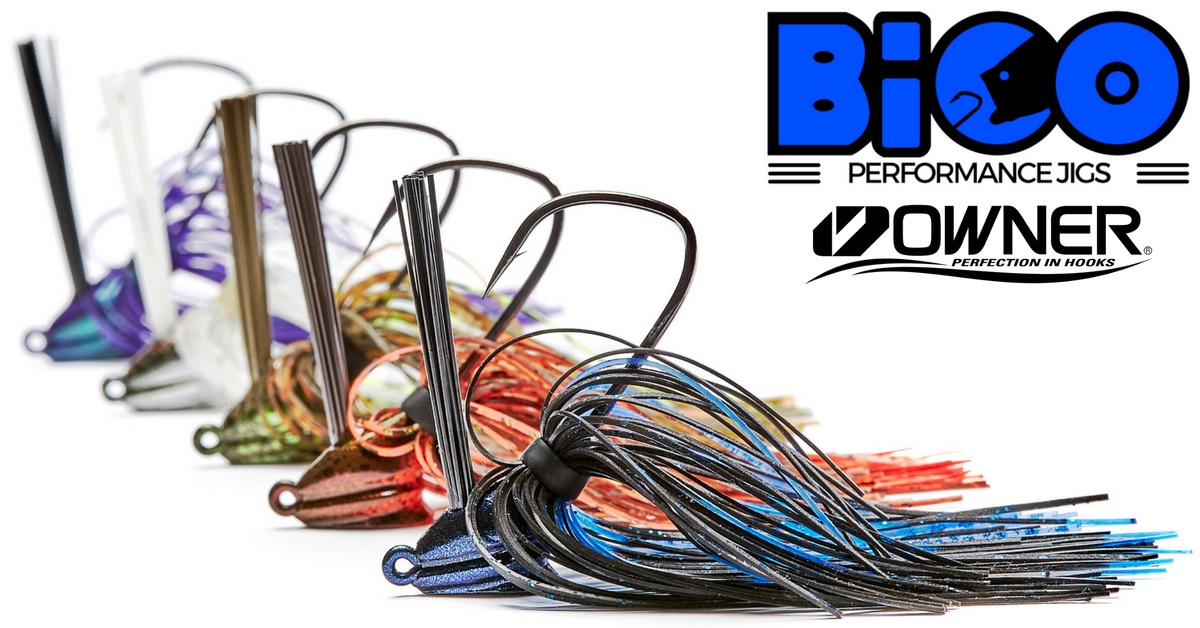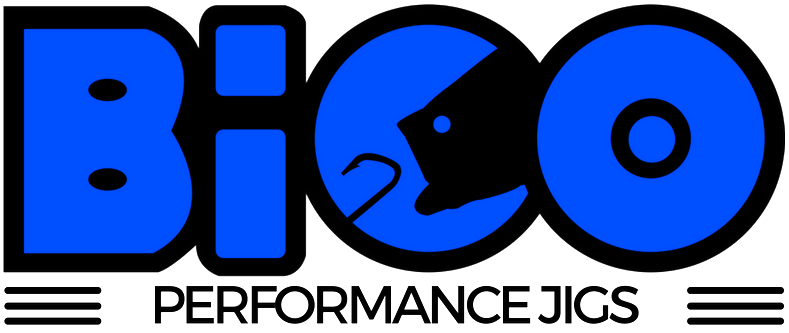Most bass fishermen in the United States are unfamiliar with laws against the use of lead tackle, this is because in most states lead tackle is legal to use and sell. But there are a some states where certain types of lead tackle is outlawed.
We have found that even in those states, a lot of the fisherman are unaware and/or don’t understand why some lead tackle is illegal. So, we thought we would make this page for those who want to know why it’s illegal and why we make lead-free bass jigs.
This warning notice was recently added to Bass Pro Shops website when ordering a jig that contains lead:
The main reason lead tackle is outlawed in some states is because it fatally poisons waterfowl when ingested. The issue is when birds swallow small lead fishing weights found in the water the lead poisons them, resulting in death. Lead consumption is not only toxic for birds but also other wildlife present in and around the waters we fish.
“Lead has traditionally been used to make sinkers and jigheads because it’s inexpensive and easily molded in a variety of shapes. However, lead has proven to be toxic to fish, birds and other animals (including humans), and lead sinkers and jigs are currently banned in a growing number of states”. – B.A.S.S
In general, the laws prohibit the use of lead jigs and sinkers weighing under one ounce. But the specifics of the actual lead laws vary from state to state. So, we broke them down on this page by state so you can reference the specific regulations for where you fish. Hopefully with the information on this page you can help protect the wildlife in the waters we love to fish, as well as avoid a penalty or fine.
Contents
New Hampshire
As of June 1st 2016, a new law took effect for the the state of New Hampshire that prohibits lead jigs and sinkers weighing one ounce or less. You won’t find a single tackle shop in the state that sells jigs or sinkers that contain lead. Lead jigs and sinkers account for 48 percent of mortalities among adult loons, by far the largest single cause of adult Common Loon mortality in New Hampshire. Here are the lead fishing tackle laws in New Hampshire as they are written:
Section 339:77 Lead Fishing Sinkers and Jigs; Sale Prohibited. –
I. No person shall sell at retail or offer for retail sale within the state of New Hampshire a lead sinker or lead jig.
II. For purposes of this section, “sell at retail” or “retail sale” means the sale to any person in the state of New Hampshire for any purpose other than for resale, “lead sinker” means any sinker made from lead that weighs one ounce or less, “lead jig” means a lead weighted hook that weighs one ounce or less. Prohibited fishing tackle shall include lead sinkers with a total weight of one ounce or less and lead jigs with a total weight of one ounce or less, regardless of whether they are painted, coated, or covered by some other substance or by attached skirts. Lead sinkers and lead jigs shall not include lead fishing related items, including but not limited to lead core line, spinnerbaits, buzzbaits, spoons, poppers, plugs, or flies.
III. Any person who violates this section shall be guilty of a separate violation for each day of sale or offering of sale, provided that the penalty for each violation of this section shall not exceed $250.
Source. 2004, 172:2, eff. Jan. 1, 2006. 2013, 193:2, eff. June 1, 2016.
Section 211:13-b Lead Fishing Sinkers and Jigs; Use Prohibited. –
I. No person shall use any lead sinker or lead jig for the taking of fish in any fresh water, except as otherwise specifically permitted in this title.
II. A person using any such lead sinker or jig shall be guilty of a violation. Notwithstanding RSA 651:2, the penalty for a violation of this section shall not exceed $250.
III. The prohibition under this section shall apply to interstate waters pursuant to RSA 211:4 and 211:5.
IV. For purposes of this section, “lead sinker” means any sinker made from lead that weighs one ounce or less, and “lead jig” means a lead weighted hook that weighs one ounce or less. Prohibited fishing tackle shall include lead sinkers with a total weight of one ounce or less and lead jigs with a total weight of one ounce or less, regardless of whether they are painted, coated, or covered by some other substance or by attached skirts. Lead sinkers and lead jigs shall not include lead fishing related items including but not limited to lead core line, spinnerbaits, buzzbaits, spoons, poppers, plugs, or flies.
Source. 1998, 312:3. 2004, 172:1, eff. Jan. 1, 2005. 2013, 193:1, eff. June 1, 2016.
New York
The state of New York banned the selling of small lead fishing sinkers back in 2004 because the Common Loon is listed on the state’s Species of Special Concern. Ingested lead fishing tackle is one of the leading causes of death for adult Common Loons, but also affects many other species of wildlife in New York. Here is the lead fishing tackle law in New York as it is written:
S 11-0308.* Sale of small lead fishing sinkers prohibited.
- No person shall sell at retail or offer for retail sale lead fishing sinkers weighing one-half ounce or less. Each day of sale or offering for sale shall constitute a separate violation of this section.
- For the purposes of this section, the following terms shall have the following meanings:
- “sinker” shall mean any device that is designed to be attached to a fishing line and intended to sink the line. Such term shall not include artificial lures, weighted line, weighted flies or jig heads.
- “sell at retail” or “retail sale” shall mean the sale to any person in the state for any purpose other than for resale.
- The department shall provide notice of the prohibition of the retail sale or offering for sale of lead fishing sinkers weighing one-half ounce or less in the state fishing regulations guide.
* NB Effective since May 7, 2004
Maine
Ingested lead fishing tackle is the leading cause of death for adult Common Loons, of which there are around 4,500 adults across the state. Keeping lead sinkers out of Maine waters will increase the survival of these birds and will allow for continued population growth of this species across the northeast. Here is the lead fishing tackle law in Maine as it is written:
LD 730, An Act to Protect Maine’s Loons by Banning Lead Sinkers and Jigs.
The sale and use of lead sinkers not meeting the length (2.5 inches) and/or weight (1 ounce) requirements is
prohibited. If a lead sinker is over 2.5 inches in length or it weighs over 1 ounce or both it is legal to use and sell or
offer for sale.
If a sinker contains ANY amount of lead, it will be considered illegal if it doesn’t meet the length and weight
requirements.
The Department will interpret the definition of lead sinker to include any tackle that is permanently manufactured
to the lead itself. When measuring for a minimum of 2.5 inches, the manufactured tackle will be included in the
measurement. This will not include any additional items that have been added to the original manufacturing
device.
Please read the manufacturer’s label carefully to determine the weight of the lead sinker. If the lead is
manufactured as part of other fishing tackle, the entire piece of equipment needs to be more than 1 ounce in
weight. The definition of a lead sinker DOES NOT include artificial lures, weighted line, weighted flies or jig
heads.
As of September 2016 the sale of bare lead jigs not meeting the length (2.5 inches) and/or weight (1 ounce)
requirements is prohibited.
NOTE: Effective September 2017, the use of bare lead jigs not meeting the length (2.5 inches) and/or weight (1
ounce) requirements will be prohibited.
Massachusetts
Although it’s illegal to use lead jigs and sinkers weighing less than an ounce in the state of Massachusetts, you will still find a whole assortment of them at Bass Pro and other local tackle shops. I know, we don’t get it either. Apparently there is no law against selling them, only against using them. Here is the lead fishing tackle law in Massachusetts as it is written:
Lead Sinkers, Lead Weights, and Lead Jigs Weighing Less Than an Ounce. Any sinker or weight made from lead that weighs less than 1 ounce, and any lead jig (meaning any lead-weighted hook) that weighs less than 1 ounce, is prohibited for use in all inland waters of the Commonwealth. The term lead sinker shall not include any other sinkers, weights, fishing lures or fishing tackle including, but not limited to, artificial lures, hooks, weighted flies, and lead-core or other weighted fishing lines.
Michigan
There are currently no restrictions on lead tackle use in the state of Michigan, but lead free tackle is strongly encouraged by the Michigan Department of Natural Resources. Since the U.S. outlawed lead ammunition for waterfowl hunting nationwide, the number of waterfowl dying from lead poisoning in Michigan has significantly decreased. However, the mortality of loons and eagles caused by lead poisoning continues to be found, and researchers believe lead sinkers and lead jigs to be the culprit.
Minnesotta
According to the Minnesotta Pollution Control Agency, during the 2002-03 session in Minnesota, the state Legislature considered banning the sale and use of lead tackle. But after a series of stakeholder discussions, the groups involved agreed that a better approach was to educate anglers about the alternatives to lead tackle and to offer opportunities to try out non-lead sinkers and jigs. This effort is supported by the cooperation of tackle manufacturers, retailers, lake associations, conservation organizations, sports enthusiasts, and government.
Vermont
The Common Loon was put on the Vermont Endangered Species List back in 1978 in order to protect them and recover their population. Over the years, the population slowly increased as a result, and the Loon was finally removed from the list in 2005. The state of Vermont enforced this law on lead sinkers in order to keep the Loon, and other birds, from becoming endangered in the future. Here is the lead fishing tackle law in Vermont as it is written:
10 V.S.A. § 4615. Lead sinkers; sales prohibited
It is unlawful to sell or offer for sale a lead sinker in the State of Vermont. In this section, “sinker” means any device which weighs one-half ounce or less and is attached to a fishing line for the purpose of sinking the line, and does not include other lead fishing-related items such as weighted fly line, lead-core fishing line, downrigger cannon balls, weighted flies, lures, spoons, or jig heads. (Added 2003, No. 137 (Adj. Sess.), § 2, eff. Jan. 1, 2006.)
Washington
In Washington, the laws against the use of lead weights or jigs apply to the following lakes: Ferry Lake, Swan Lake, Pierre Lake, Big Meadow Lake, Yocum Lake, South Skookum Lake, Lost Lake, Blue Lake, Bonaparte Lake, Calligan Lake, Hancock Lake, Lake Hozomeen, and Long Lake. Here is the lead fishing tackle law in Washington as it is written:
WAC 232-28-619 Washington food fish and game fish—Freshwater exceptions to statewide rules.
Unlawful to use lead weights or lead jigs that measure 1 1/2 inch or less along the longest axis.
(2) As used in this section, “lead jig” means a lure consisting of a hook permanently or temporarily attached directly to a lead weight by any method. “Lead weight” means material constructed of lead and applied to a fishing line or lure and designed to help keep the hook, bait, or lure underwater.


